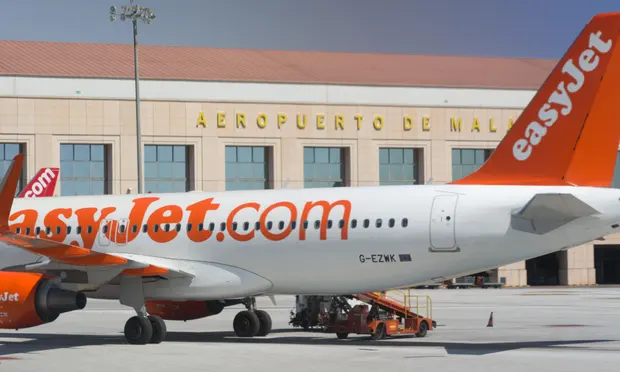Holidaymakers are not being deterred by the heatwave in Europe and are continuing to jet off on their summer vacations amid booming demand for travel, according to easyJet.
The airline reported a record pretax profit of £203m for the three months to the end of June, surpassing analysts’ forecasts. This ws despite continuing disruption from strikes across Europe, including those by air traffic control managers in France.
EasyJet’s rivals across Europe are also expected to announce strong earnings for the past quarter. Growth in bookings is predicted to continue into the winter.
The Luton-based carrier said it was seeing strong demand for its holidays, and bookings for winter trips had more than doubled compared with a year earlier.
Johan Lundgren, easyJet’s chief executive, said it expected to make another record pretax profit between July and September, when it will operate more than 160,000 flights.
There was no sign that the heatwave was putting off holidaymakers from northern Europe from booking, he said: “British people have gone for a long time to places like Egypt or Turkey in August, which constantly have very, very high temperatures. So it doesn’t seem to be a deterrent at all for a lot of people. They are on holiday, sitting by a pool or swimming in the Mediterranean and they have air-conditioned hotels.”
Lundgren said the current extreme temperatures in destinations such as Italy and Greece was a reminder of the climate crisis. He said: “I wouldn’t think of this summer as a wake-up call [to aviation] … this realisation has been there for years. The weather we’re seeing currently is just a reminder of what we probably have ahead of ourselves here, and we need to demonstrate that we can have less impact on the environment, contribute less to that, and be able to grow, and that’s what we intend to do.”
The carrier said it was earning 23% more per seat on its aircraft compared with a year earlier, while the cost of flying its planes – not including fuel – had fallen slightly, with oil prices stabilising.
Lundgren said half of the average £11-per-seat fare increases was due to fuel, and profits had been driven by ancillary revenues such as seat allocation and inflight sales, as well as a 72% growth in customers in easyJet’s package holidays arm.
Lundgren warned of potential disruption to travel from strikes, including in air traffic control across Europe, and possible limited airspace availability.
Last week easyJet cancelled 1,700 summer flights, primarily from Gatwick, potentially disrupting the holiday plans of thousands of passengers, blaming “unprecedented air traffic control delays”.
More air traffic control strikes on mainland Europe have been threatened. This month a union at the Eurocontrol network manager operations centre gave formal warning of strikes witin the next six months. It did not name firm dates.
Lundgren said strikes had not yet led to any serious disruption. “The situation is stable so it’s difficult to say what this will be going forward. It’s usually down to delays rather than cancellations across European networks,” he said.
There have been 40% more days of strikes by air traffic control managers across Europe so far this year compared with in 2019.
Lundgren said easyJet was increasing its capacity over the winter.
Source: The Guardian















